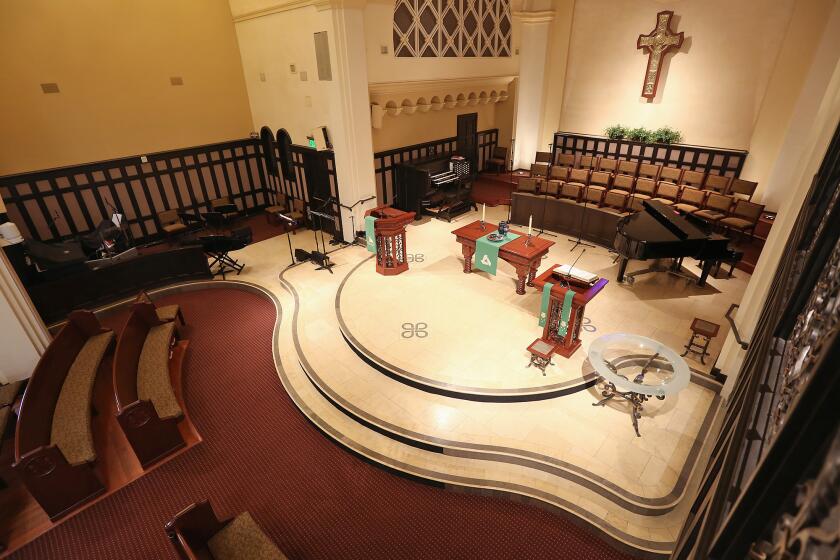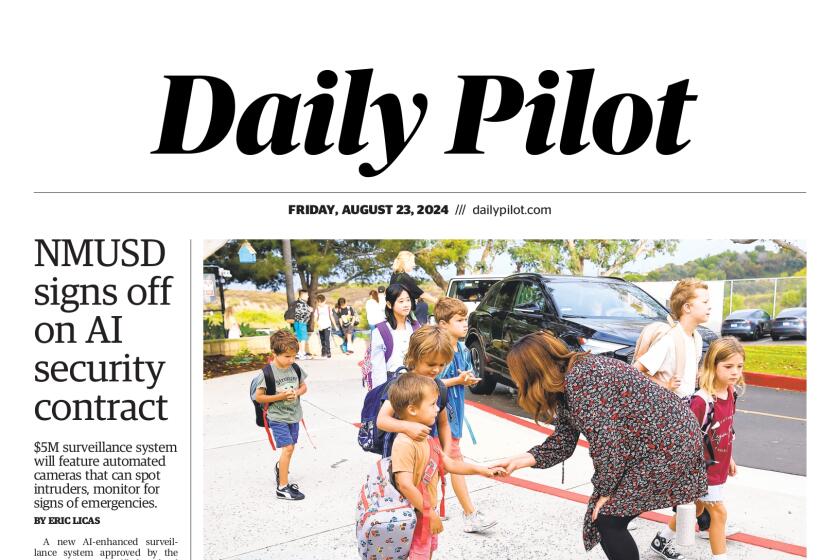Costa Mesa keeps Job Center open
Deepa Bharath
COSTA MESA -- Council members on Monday put an end to the heated
debate and controversy surrounding the city-funded Job Center, voting to
continue its service to both residents and nonresidents.
The council voted 4 to 1, with Councilman Chris Steel dissenting, to
keep the employment hub open. But they added a condition that the
one-time registration fee be increased from $5 to $10 for Costa Mesa
residents and to $15 for people who live outside the city.
The Job Center, at the corner of 18th Street and Placentia Avenue,
opened in 1988 to provide a central clearinghouse for contractors and
employers to find temporary work. The move was a response to years of
complaints that dayworkers congregated at various city parks and
businesses.
The center costs $87,000 a year to run and works on a lottery system
for people seeking jobs. Since its opening, police and city officials say
the center has reduced or eliminated the problems associated with
unorganized solicitation throughout the city.
Several people who attended Monday night’s meeting wore badges that
read “Save the Job Center.” Those who spoke in support of the center at
the council meeting outnumbered those who spoke against it.
Council members, who heard people speak on the issue for about two
hours, said they themselves have had a tough time taking a stand.
“I’ve struggled with this issue tremendously,” Councilwoman Karen
Robinson said.
She added that she understands there is a part of the community that
has a substantial concern about the use of tax dollars for a service such
as the Job Center.
“But I also understand there is another part of the community that
sees the Job Center as an opportunity to realize their dreams, to feed
their families and to survive,” she said.
Steel, who has publicly opposed the center, said Monday that he is not
against people making a living but is concerned about quality of life
issues for the surrounding community.
Steel, much like many of his supporters, has maintained that the Job
Center attracts illegal immigrants into the community, increasing crime,
lowering property values and degrading the schools.
“This isn’t racism,” he said. “It’s reality. It’s time we got out of
the Job Center business.”
Councilwoman Libby Cowan, who made a motion to delay a decision on the
center, said the center has been successful.
“People do not understand the importance of dignity in job seeking,”
she said. “My grandfather survived during the Depression by soliciting
jobs in shipyards. . . . This is about doing the right thing.”
The city’s administrative services staff members recommended that the
council keep the center open but impose further restrictions, such as
excluding dayworkers who do not live in Costa Mesa and placing greater
emphasis on checking identification.
Current city estimates are that 37% of those who use the center are
not Costa Mesa residents and only about 51% of the employers who hire
workers from the Job Center are based in the city.
Job Center supporters said they were thrilled with the council’s
decision.
“This is something the whole community will benefit from,” said Paty
Madueno, a member of the Orange County Congregation Community
Organization, St. Joaquim’s Church and a resident manager at Costa Mesa
Family Village.
“This is about the hands that peel the potatoes, chop the tomatoes and
wash the lettuce that goes to your table,” she said. “Everybody deserves
the right to put food on their table.”
Allan Mansoor, who expressed his opposition to the center, said the
sensible approach to eventually close the center is simply to reduce the
need for the center.
“Ultimately, we need to close the Job Center,” he said. “But this
problem did not come about overnight and is not going to be fixed
instantly. The problem of loitering can be greatly reduced if we take the
right steps.”
The most obvious way to reduce the need for the center, he said, “is
to stop allowing people from other cities to use our taxpayer-funded
center.”
* Deepa Bharath covers public safety and courts. She may be reached at
(949) 574-4226 or by e-mail at o7 deepa.bharath@latimes.comf7 .
All the latest on Orange County from Orange County.
Get our free TimesOC newsletter.
You may occasionally receive promotional content from the Daily Pilot.



